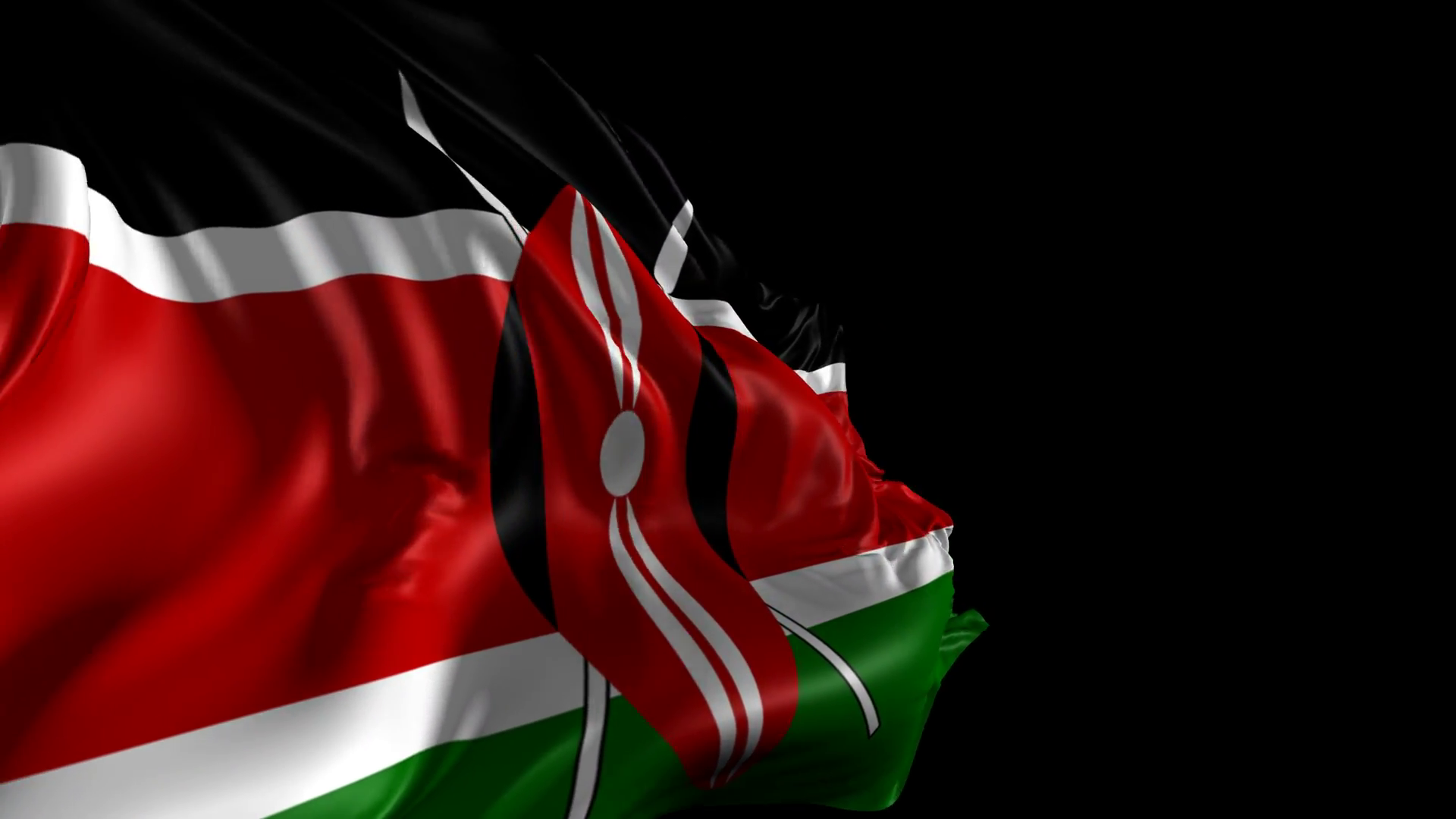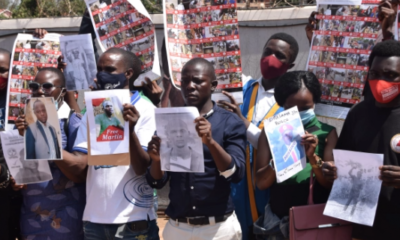
Kenya Expands Citizen Engagement Amid Challenges to Free Expression – The East Observer
Kenya is witnessing a transformative shift in citizen engagement with government, both locally and nationally, largely driven by the rise of social media platforms like X, Facebook, YouTube, Instagram, TikTok, and WhatsApp. These tools have empowered individuals and groups to share their voices and become influential publishers, leading to a surge in citizen journalism that rivals traditional media outlets. Some social media personalities have amassed followings in the millions, challenging the reach of established television, radio, and print media.
However, this vibrant landscape comes with significant challenges. While traditional media is governed by strict regulations, social media operates in a largely unregulated space, raising concerns about free expression and accountability. The courts in Kenya have played a crucial role in interpreting and defending the constitutional right to freedom of expression, consistently underscoring the importance of the right to seek, receive, and disseminate information in a democratic society.
The Kenyan Constitution provides robust protections for free expression and the press, outlining clear limitations on hate speech and incitement to violence. Courts have issued landmark rulings reinforcing these principles, including a declaration that criminal defamation is unconstitutional. Recent judgments have also invalidated laws criminalizing criticism of public officials and vague regulations on “menacing messages,” asserting that such laws fail to meet constitutional clarity requirements.
Despite these advances, the recent enactment of a cybercrime law poses significant threats to online speech. Provisions that criminalize the publication of false or misleading information and materials that induce fear or reputational harm have raised alarms among critics. They argue that the law essentially reinstates criminal defamation, with harsh penalties including fines up to Sh29 million and prison sentences ranging from two to ten years. Critics warn that vague terminology allows for subjective interpretation by authorities, leading to potential misuse.
The law’s enforcement was temporarily suspended after a challenge by the Bloggers Association of Kenya (BAKE) and ARTICLE 19 Eastern Africa, but a subsequent court ruling upheld it, disappointing many who advocate for civil rather than criminal remedies for defamation. This case is currently under appeal, highlighting the ongoing struggle to balance freedom of expression with the need to protect individuals from harmful content.
The situation underscores a critical debate in Kenya: while freedom of expression is a fundamental right, it is not absolute. The law’s application has primarily targeted critics of the government, prompting fears of repression and the need for a more nuanced approach that respects both individual rights and public discourse without giving authorities unchecked power to silence dissent.
https://www.observer.co.ke/africa/kenya-expands-citizen-engagement-amid-challenges-to-free-expression/?utm_source=rss&utm_medium=rss&utm_campaign=kenya-expands-citizen-engagement-amid-challenges-to-free-expression
News
Ugandan Citizen Abducted, Held in Secret Detention for Three Months, Sparks Outrage and Calls for Justice

A disturbing new case of unlawful detention has surfaced, highlighting the ongoing human rights crisis in Uganda. A Ugandan citizen was reportedly abducted and held in a secret facility, known as a “safe house,” for three months, only to be released without charge or explanation. This incident, reported by NTV Uganda, has sparked widespread condemnation and renewed calls for accountability regarding human rights abuses in the country.
While the details surrounding the abduction remain unclear, reports indicate that the individual was taken without due process and held incommunicado—an action that has long been condemned by human rights organizations. The victim’s release, with no charges filed and no clear justification, has angered activists and citizens, who view this as yet another case of egregious abuse of power by the state.
“This is a recurring pattern,” said one human rights activist. “Abductions, secret detentions, and unexplained releases have become all too common in Uganda. These acts violate fundamental human rights and erode public trust in the justice system.”
The use of “safe houses,” unregistered detention facilities reportedly operated by security forces, has been a focal point in numerous allegations of torture and illegal imprisonment. Despite repeated calls from both local and international organizations for their closure and accountability for those involved, little action has been taken to address these violations.
This case underscores the urgent need for reform within Uganda’s security apparatus and greater accountability for human rights abuses. Observers hope that drawing attention to these injustices will spur concrete action to bring those responsible to justice and ensure the protection of basic human rights.
As frustration mounts, calls for both domestic and international pressure to hold the government accountable for such crimes grow louder. “One day, there must be accountability for all these crimes against our people,” stated one social media user, reflecting the sentiments of many Ugandans.
News
NUP Gathering Disrupted: Kyagulanyi Alleges Security Force Harassment and Arrests

National Unity Platform (NUP) President Robert Kyagulanyi has accused Ugandan security forces of using excessive force to disrupt a planned NUP gathering. The allegations were detailed in a statement shared on Twitter, following an event held to honor children of NUP supporters who were killed, disappeared, or detained for their political beliefs.
According to Kyagulanyi, security personnel, under the command of an officer identified as Asiimwe, carried out a preemptive operation early in the morning upon learning of the NUP’s plans. The forces allegedly stormed the premises, arrested workers, and deployed tear gas to disperse those present.
“The criminals under the command of one Asiimwe deployed early morning, arrested our workers, and threw tear gas into our premises. They’ve cordoned off the premises and blocked all people from accessing the place,” Kyagulanyi wrote.
Among those reportedly arrested were Saava Peter, Mudenya Samson, and Turyasingura Samson. Kyagulanyi claimed the detained workers were subjected to beatings and interrogated about their political affiliations, with security operatives labeling them as terrorists.
“These JATT operatives asked the workers who they support politically, branding them terrorists and criminals—their only crime being that they work with us. You can imagine the indignity!” Kyagulanyi lamented.
This incident adds to the growing tension in Uganda’s political climate, where opposition parties frequently accuse the government of stifling dissent. Despite the challenges, Kyagulanyi ended his statement with a message of defiance and optimism, proclaiming, “UGANDA WILL BE FREE.”
NUP Gathering Disrupted: Kyagulanyi Alleges Security Force Harassment and Arrests
News
Sudan Demands Apology from Uganda Over Army Chief Muhoozi Kainerugaba’s Threat to Invade Khartoum

Sudan has demanded an official apology from Uganda over “offensive and dangerous” comments made by the chief of Uganda army staff, who threated to invade Khartoum, the Sudan Tribune has reported.
General Muhoozi Kainerugaba, son of Ugandan President Yoweri Museveni and CDF of the Ugandan army, posted two comments on the X platform on Tuesday in which he threatened “to capture Khartoum” with the support of the US President elect Donald Trump after he takes office. The posts were deleted later.
“The government of Sudan demands and official apology from the Ugandan government for the offensive and dangerous comments of the army commander,” Sudan’s foreign ministry said in a statement that the Sudan Tribune said it has seen.
Sudan Demands Apology from Uganda Over Army Chief Muhoozi Kainerugaba’s Threat to Invade Khartoum









